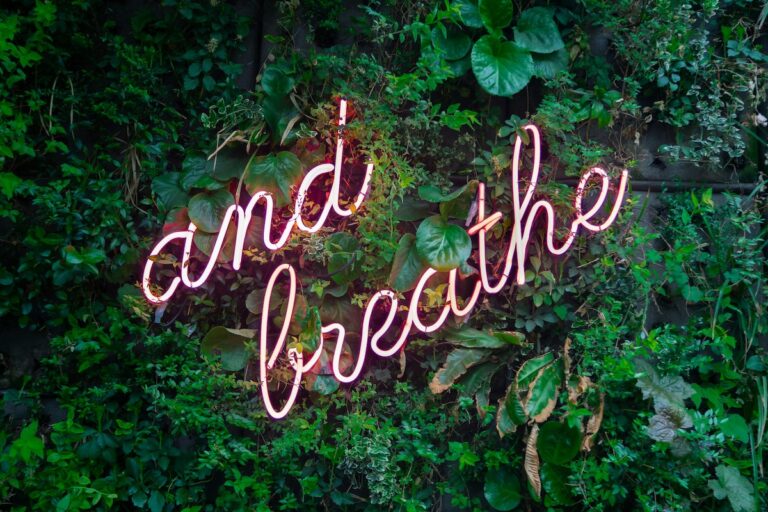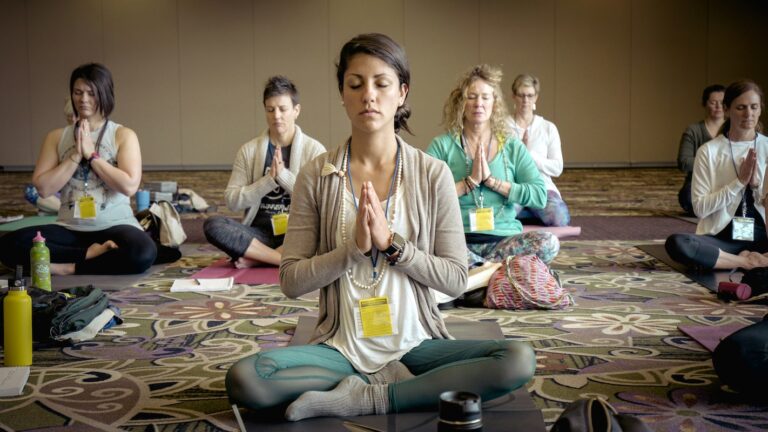Understanding Stress and Anxiety
What is Stress and Anxiety?
What is Stress
Stress is any demand placed on your brain or physical body. Any event or scenario that makes you feel frustrated or nervous can trigger it.
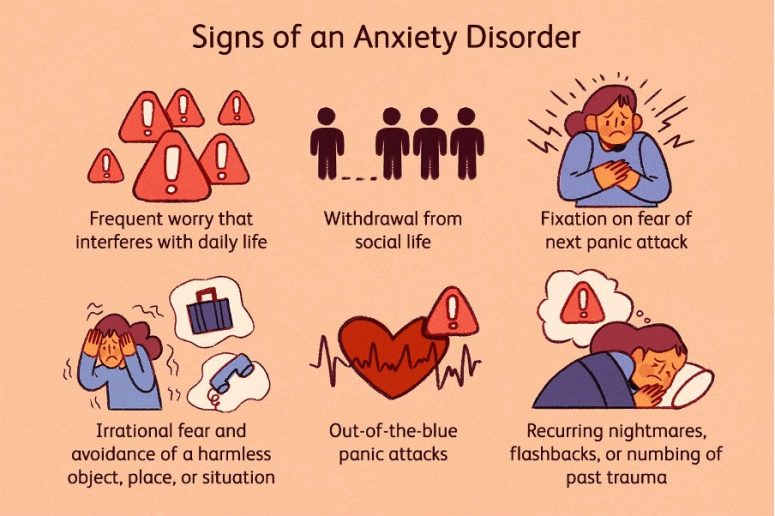
What is Anxiety
Anxiety is a feeling of fear, worry, or unease. While it can occur as a reaction to stress, it can also happen without any obvious trigger.
Most people experience some feelings of stress and anxiety at some point, and that isn’t necessarily a “bad” thing. After all, stress and anxiety can sometimes be a helpful motivator to accomplish daunting tasks or do things you’d rather not (but really should).
But unmanaged stress and anxiety can start to interfere with your daily life and take a toll on your mental and physical health.
Techniques to Manage Stress and Anxiety
It’s common to experience stress and anxiety from time to time, and there are strategies you can use to make them more manageable.
Pay attention to how your body and mind respond to stressful and anxiety-producing situations. Next time this type of experience occurs, you’ll be able to anticipate your reaction, and it may be less disruptive.
Certain lifestyle changes can help alleviate symptoms of stress and anxiety. These techniques can be used alongside medical treatments for anxiety.
Techniques to reduce stress and anxiety include:
The 4–7–8 Technique
Breathe in for four seconds. Hold your breath for seven seconds, and exhale for eight seconds.
Long Exhale
Spend a bit longer exhaling than you do inhaling. Exhale fully, and then take a big, deep breath for four seconds. Then exhale for six seconds.
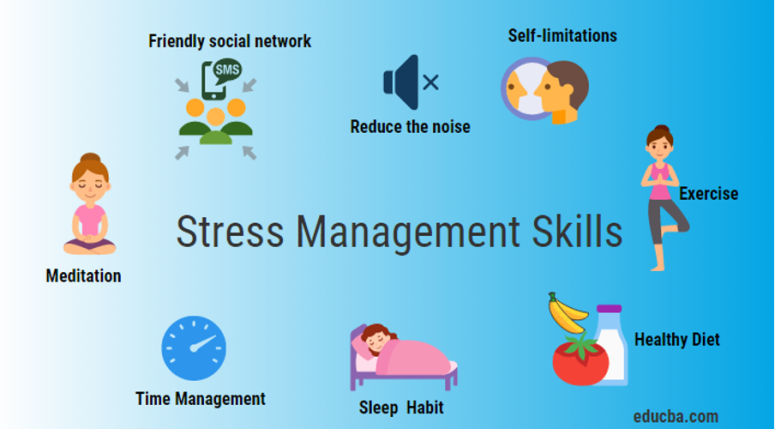
Focus on the present
Have you ever noticed that feeling stressed or anxious often coincides with dwelling on the past or worrying about the future? Focusing your mind on the present moment can help you feel a little more relaxed.
Take a break
Schedule regular breaks into your day. Excuse yourself for five to ten minutes, go to a different room, or put aside what you’re doing to take a walk around, try some breathing exercises, get some fresh air or do some light stretches to help you relax.
Talk to someone you trust about how you’re feeling
Just talking to someone about how you’re feeling can take a weight off your shoulders. Make sure you trust the person, work out what you want to say to them, and then just go for it.
Long-term strategies for dealing with stress and anxiety
If you experience anxiety more frequently, or have been diagnosed with an anxiety disorder, quick coping methods can still help when you’re in a bind, but they shouldn’t be the only thing you use. It’s important to find treatment that works for you to manage your day-to-day life. It can be helpful to have a chat to your doctor or mental health professional to figure out a plan.
Keep a ‘thought diary’ and challenge any negative thinking
Writing down what you’re worrying about can help you to clear your head and reduce stress and anxiety. You could keep a journal or have a notes file in your phone and write down your thoughts whenever you’re feeling anxious. It’s almost like you’re transferring them out of your head and into your journal.
Doing this can also help you to see what you’re thinking about more clearly and to challenge negative thinking. If you’re having trouble challenging your thinking, you could try asking someone you trust (such as a friend, family member or mentor) or a therapist to help you out.
Identify your triggers
You can identify your triggers with a psychologist or on your own. Recognising what causes your anxiety can help you to better understand and face what’s going on. Some common triggers are:
Avoid drugs, alcohol and stimulants
Stimulants are chemicals that ‘excite’ your nervous system, making it work faster and harder. Using stimulants can worsen your anxiety symptoms, so cutting these out can help you to manage your anxiety. Some of the most common stimulants are:
- caffeine, which is found in coffee and tea
- nicotine, which is found in tobacco products such as cigarettes, chews and vape pens
- drugs such as cocaine.
It’s ideal to avoid alcohol and drugs in general when you’re experiencing anxiety. If you’re using substances to feel better or to relax, you might become dependent on them, and they could make you feel worse in the long run.

Put relaxation and self-care into your routine
A fully packed schedule would make a lot of people feel stressed. Make sure you take time out each day for at least one thing you enjoy doing – whether it’s spending time on a hobby, watching a Netflix episode, or chatting with a friend. It can also help if you schedule the activity into your day, so that you don’t feel guilty about not doing something else.
If you’re feeling overwhelmed, don’t be afraid to say ‘no’ to things when you need to.
Move more, eat well, sleep
It’s well-known that exercise lowers stress, reduces anxiety and improves mood. And the good news is you don’t need to run a marathon to get the benefits. It takes just 30 minutes of exercise a day to make a difference.
Diet and sleep are also important for your wellbeing. A healthy diet will make you feel healthier and stronger and better able to handle stress, while enough sleep positively affects your mood and stress levels.
Begin with small steps – think of them as ‘acts of bravery’ – to test whether the situation is as bad as you expected and to learn to manage your fears. It’s best to do this with the help of a professional (such as a counsellor or psychologist), though, so that it doesn’t get too full-on for you.
The Bottom Line
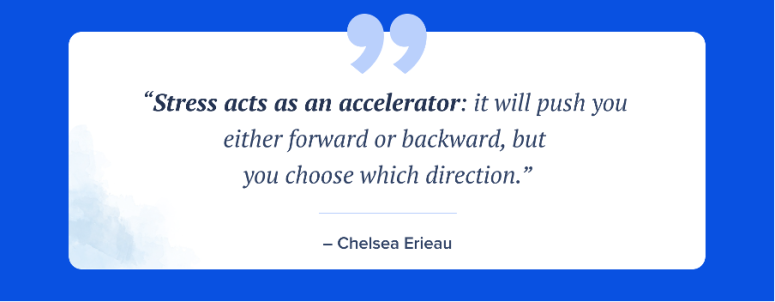
While some amount of stress and anxiety in life is expected and shouldn’t be a cause for concern, it’s important to recognise when these feelings are causing negative consequences.
swara runs an NDIS-funded Health and Nutrition Day Program that can help manage stress and anxiety in your life. Contact the friendly swara team to find out more or to sign up today.
Are You Struggling?
If you are struggling with stress or anxiety and require further help, please consider the following links:
Tips To Keep Good Mental Health – for Young People | headspace
Grounding Techniques: 30 Techniques for Anxiety, PTSD, and More (healthline.com)
13 11 14 – Lifeline Crisis Support Line | Lifeline Australia
Self-Improvement Strategies for Mental Health (verywellmind.com)
How Self-Esteem Affects Social Anxiety Disorder (verywellmind.com)




